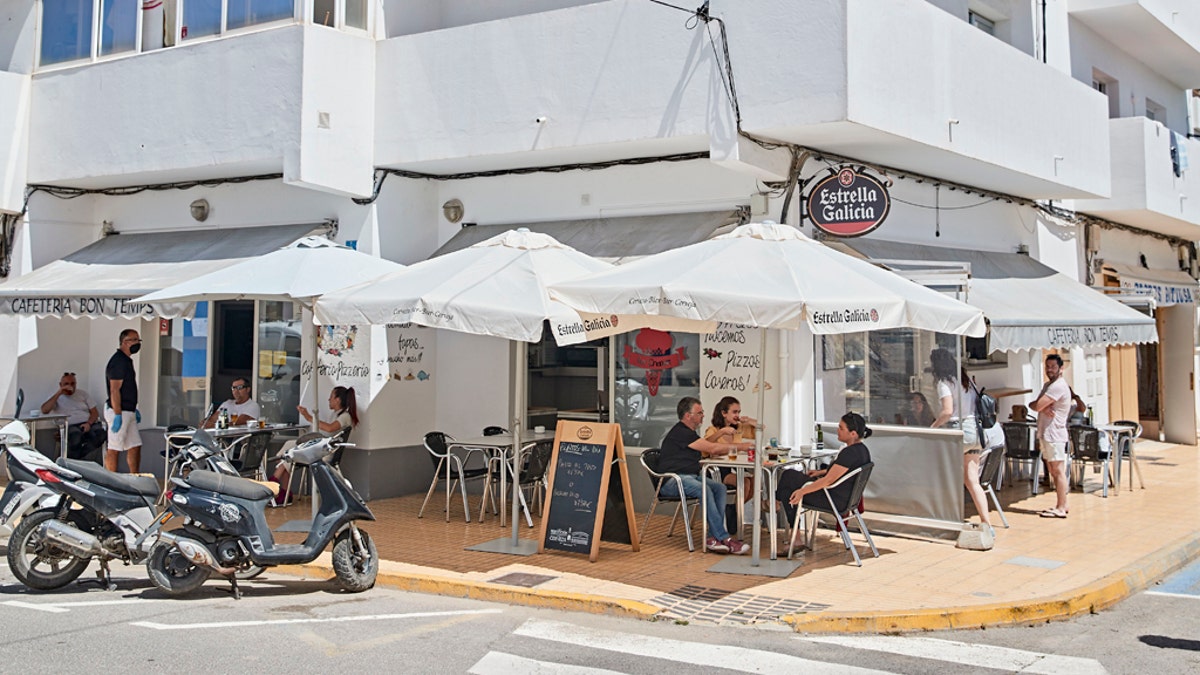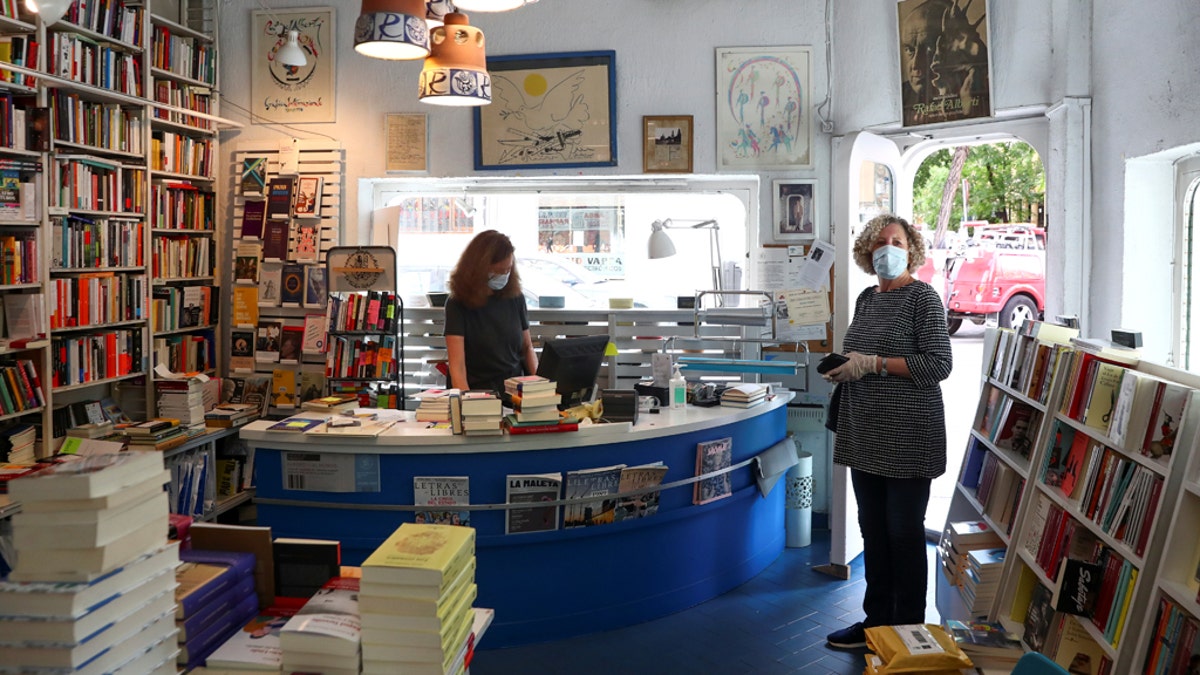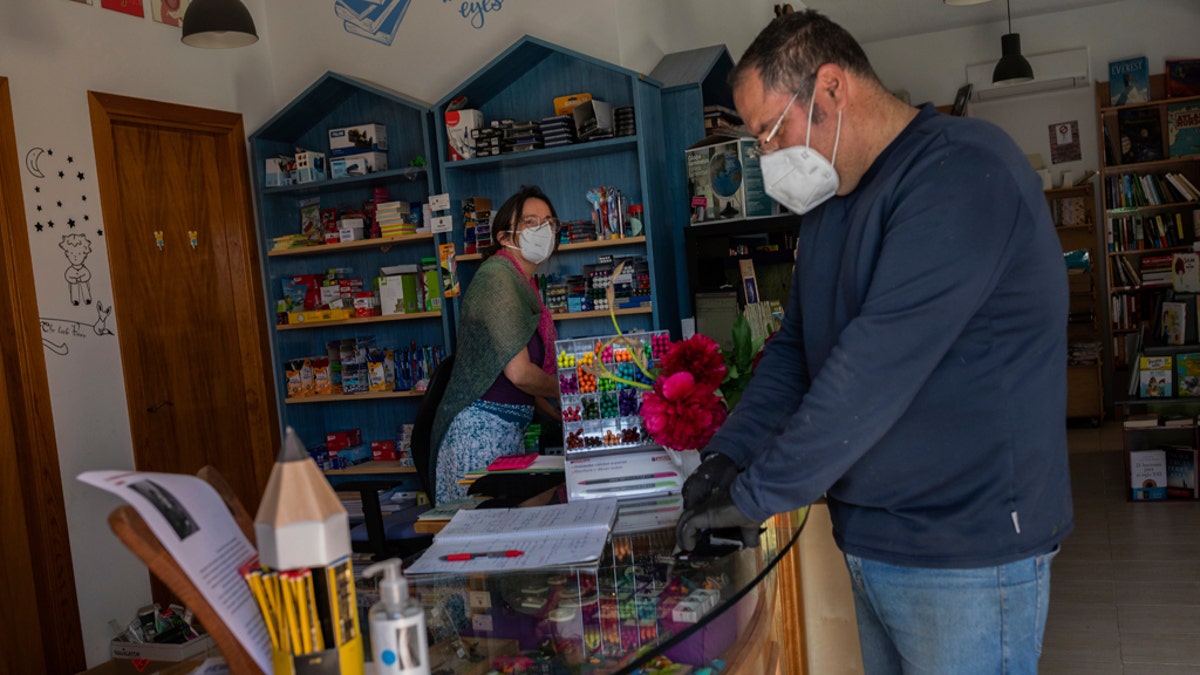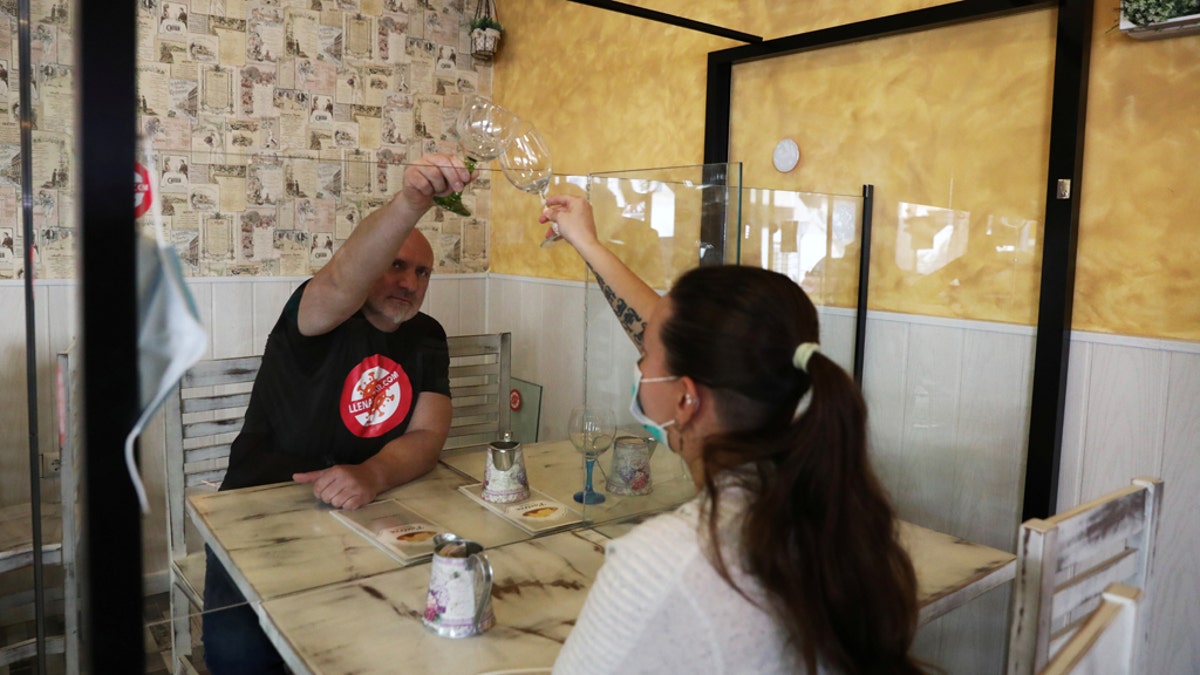Fox News Flash top headlines for May 7
Fox News Flash top headlines are here. Check out what's clicking on Foxnews.com.
Get all the latest news on coronavirus and more delivered daily to your inbox. Sign up here.
MADRID - Spain's normally bustling restaurant terraces remain eerily quiet as the country's tapas culture has been brought to a standstill -- for now.
Sharing a plate of food in a busy bar or eatery is as Spanish as paella but all that stalled since the government brought in one of the most draconian lockdowns in the world to contain the coronavirus.
Kissing friends or family – another natural part of this tactile Spanish life – was also outlawed as Spaniards found themselves barred from meeting for fear of spreading the infection.
CLICK HERE FOR FULL CORONAVIRUS COVERAGE
The cost to the country has not just been in losing an essential part of its culture.
Since the lockdown, 200,000 employees in the restaurant sector have lost their jobs, according to the consultancy EY Bain & Company.

Customers in a coffee shop in Sant Francesc on May 06, 2020 in Formentera, Spain. Among its 12,000 inhabitants (approximately) currently registered, there have been seven people infected with coronavirus, of which only two are still active, and one dead victim. Since May 4th, Formentera residents are allowed to have a bath in the beach and, after 50 days of lockdown, bars and restaurants are open to public with public attendance limitations. (Andres Iglesias/Getty Images)
The hotels association Hosteleria de España estimates the summer season, when bars and hotels are normally full, will be even worse for a sector that accounts for 6 percent of Spain's GDP.
At Noa, a cafe in Barcelona, the terrace is deserted.
ITALY, SPAIN AND FRANCE EASE LOCKDOWNS AFTER EUROPE'S HOTSPOTS SEE RECORD LOW CORONAVIRUS CASES
Ernest Cebrian, owner of the cafe, said: “We have been allowed to open as we are a bakery and so are classified as a food shop but we also operate as a cafe. So, our takings are 70 percent down.”
However, as the death rate has fallen, Spain's left-wing government has announced a slow easing of the lockdown.

Lola Larumbe attends a customer inside her Rafael Alberti book shop amid the coronavirus disease (COVID-19) outbreak in Madrid, Spain, May 5, 2020. (Reuters)
From May 11, restaurants with terraces will able to open to 50 percent capacity as long as they clean the premises twice a day and customers and staff observe social distancing measures.
If the infection rate continues to drop, restaurants will be allowed to reopen at a later date.
Desperate to save their businesses, some businesses have proved inventive.

A stationary shop owner attends a customer in La Cabrera, outskirts of Madrid, Spain, Wednesday, May 6, 2020. The country enters the first stage of its 4-phase lockdown rollback helped by the lowest daily reports of coronavirus related deaths from coronavirus in 1.5 months. (AP)
In Madrid, La Hornada restaurant has installed hygiene partitions between diners of the future.
They are made of methacrylate, the same material which is used to protect supermarket workers from customers.
Manuel Gil, of llenatubar.com, a company that makes the screens, said: “They allow you to see each other but the famous drops (of saliva) cannot reach the other person,” he told Telemadrid television.
Many in the business worry, however, that dining out Spanish-style will never be the same again.
Rubén Martín, a chef who won Spain's first virtual tapas competition after the state of emergency was imposed in March, said the feeling will be artificial for customers.

Manuel Gil, owner of company Llenatubar, simulates a toast in a coffee bar with worker Sheila on a table with methacrylate transparent screens built and installed by his company, following the outbreak of the coronavirus disease (COVID-19) in Leganes, Spain, April 24, 2020. (Reuters)
“We cannot make bars into places where people are confined to little boxes like on an Excel sheet,” he said.
Juan Diez Nicolas, a senior sociological investigator at the Real Elcano Institute, a think-tank in Madrid, said Spaniards, like other southern Europeans, live their lives spontaneously in the street.
CLICK HERE FOR THE FOX NEWS APP
“It is part of our life, partly because of the weather. So is the kissing and being tactile,” he told Fox News over the telephone. “Tapas is part of this tradition. It has gone for now but I have no doubt that when these restrictions are lifted we will return to doing exactly the same as before.”





















